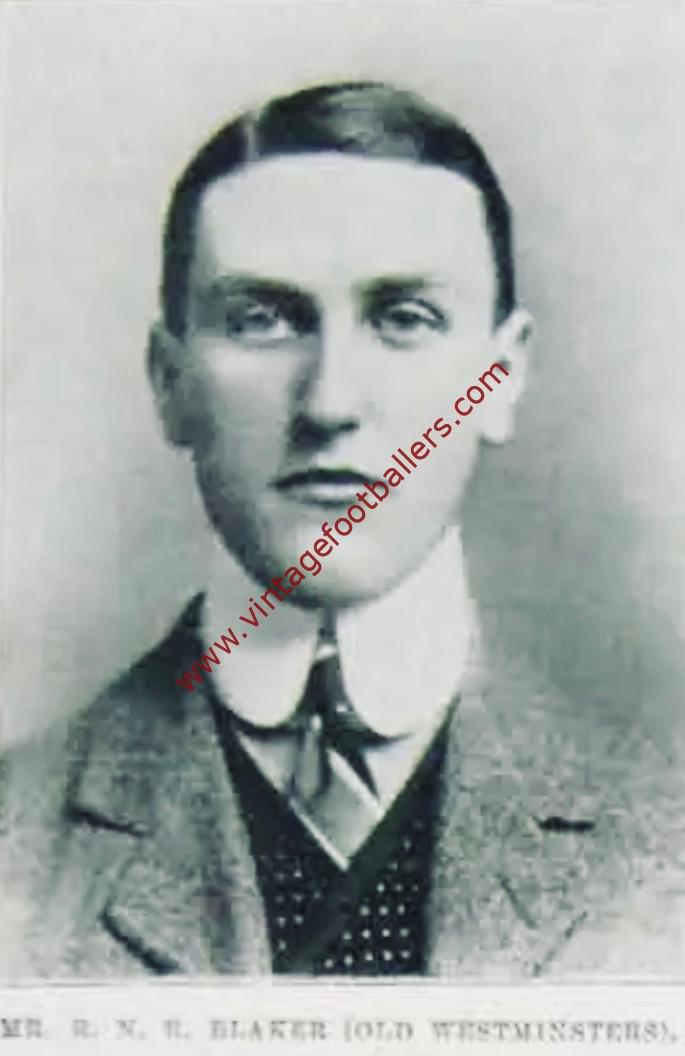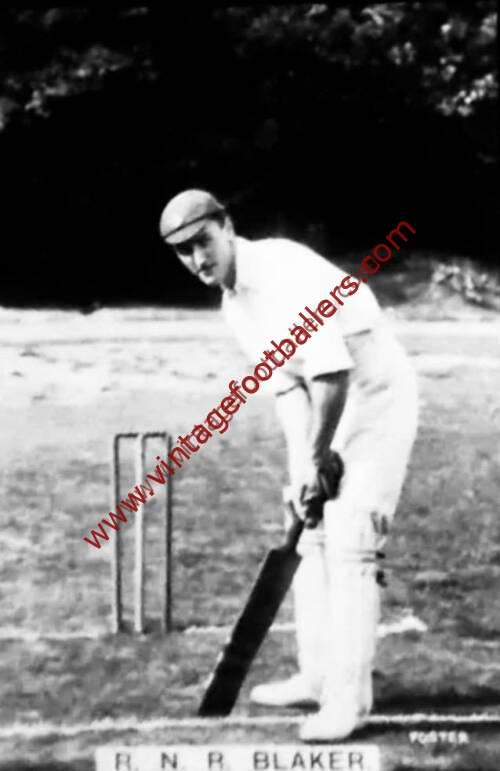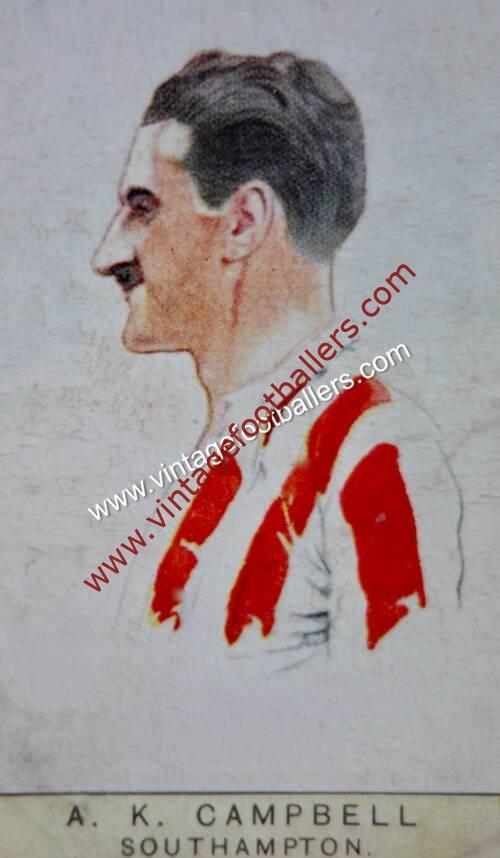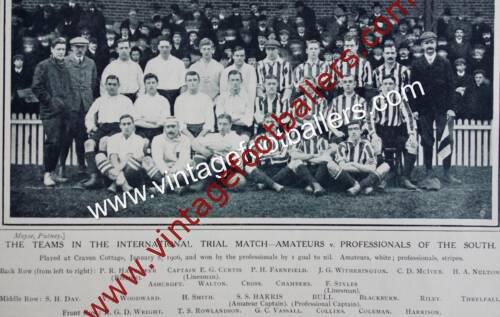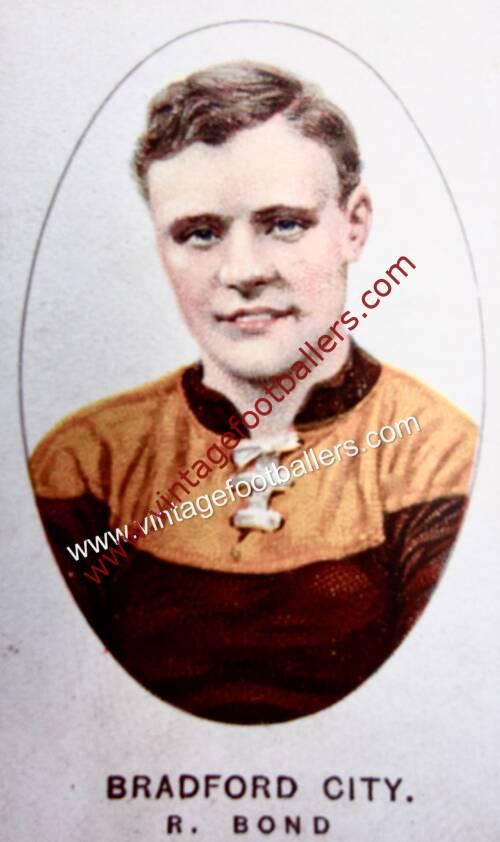Description
Bayswater, London born centre forward Dick Blaker attended Westminster School where he was the captain of both the cricket and football teams for four years. He played both sports for Cambridge University, where he attended Jesus College between 1898 and 1902, gaining Blues in both sports and captaining the University football team in the 1901 Varsity match. As a footballer, Blaker captained both his school team and Cambridge University. He played regularly for amateur side The Corinthians in the early years of the 20th century during which time the team competed against top professional sides on a regular basis, also playing for his school old boys’ club Old Westminsters.
Blaker was better known as a cricketer and made his first class cricket debut in 1898, appearing for Kent against Middlesex at Lord’s. He played only twice in 1898 before appearing five times for both Cambridge University and for Kent in 1899. From 1900 he made more regular appearances and was awarded his County cap.
Blaker toured the West Indies with R.A. Bennett’s XI in 1901-02 playing in all thirteen first class matches on the tour. He captained Kent twice in 1905 and played in the Kent side which won the 1906 County Championship, the first title in the County’s history, but 1907 was his final season playing regularly for the club as his professional career as a civil servant began. Blaker made a final appearance for Kent in the 1908 season, playing at the St Lawrence Ground against the touring Gentlemen of Philadelphia.
Wisden reports that he was an attacking batsman who scored quickly and a “fine slip fielder” whilst The Times considered him “”a cricketer of adventure as well as talent”. He had broken the Westminster school record for throwing a cricket ball 108 yards in 1898 and could throw further than almost all his Kent contemporaries, although he generally fielded in what was considered an excellent Kent slip cordon. As a batsman he could score quickly, making 120 runs in 75 minutes against Gloucestershire at Catford in 1905 before going on to add 71 runs in a partnership with Arthur Day in only 15 minutes in the second innings.
Blaker played once for Oxfordshire in the Minor Counties Championship and, after the First World War, for the Civil Service cricket team and for his local club Blackheath. He was on the Kent Committee from 1946 to 1950 and President of the club in 1950, serving in the office when he died the same year aged 71.
Blaker served with The Royal West Kents and The Rifle Brigade during the First World War. He enlisted under the Derby scheme in December 1915 aged 36, entering the Army Reserve as a Private before being posted to 10th Battalion the Royal West Kents in March 1916. He was promoted first to Lance Corporal and then to Lance Sergeant before being admitted to Officer Cadet School in July 1916 at Gailes in Ayrshire. After training he was commissioned as a 2nd Lieutenant in the Rifle Brigade but immediately fell ill with pneumonia.
The illness kept Blaker in Britain until September 1918 when he was posted to France to join the 13th Battalion Rifle Brigade, having been promoted to lieutenant in May of the same year. He served on the front line in the final stages of the War, taking part in the crossing of the St Quentin Canal in the Hundred Days Offensive. His unit then took part in attacks around Louvignies near Cambrai on 4th November 1918, advancing across a railway line and into a series of defended positions in orchards. Blaker went ahead of his platoon and single-handedly captured German two machine gun teams and a group of 30 other Germans. He won the Military Cross for his actions “for most conspicuous courage and good work”. Blaker’s unit moved into reserve following the attack and he did not see more front line service during the War. He was demobilised in February 1919 and resigned his commission in January 1920.

